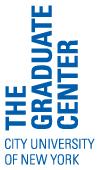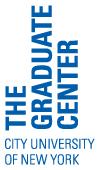
Credit: The Graduate Center
NEW YORK, October 20, 2017 – The Graduate Center (GC) of the City University of New York (CUNY) has entered into a joint endeavor with Princeton University to explore the interface between biology and physics through the establishment of the Center for the Physics of Biological Function.
This effort will be supported by the National Science Foundation through a $13 million grant over five years.
The new center will support research at the Graduate Center, including the mentoring of postdoctoral fellows and a regular series of symposia and seminars. Public programs will bring the excitement of center activities to a broader audience, and an annual summer school for advanced undergraduates, to be held at Princeton, will expose CUNY students to new intellectual opportunities at the borders of classical scientific disciplines.
"We're excited by CUNY's new collaboration with Princeton, which we expect will lead to scientific discoveries and singular research opportunities for our graduate and post-doctoral students," CUNY Chancellor James B. Milliken said. "We're especially pleased at the option that some of our talented undergraduates will now have for summer study at Princeton's well-respected laboratories. We also look forward to the series of public programs on issues in biophysics that the Graduate Center will offer at 365 Fifth Avenue."
During the past several years, the Graduate Center has launched a substantial effort to become a focal point for research in the sciences. Among these efforts is the Initiative for the Theoretical Sciences (ITS), which aims to provide a home for theorists interested in a broad range of questions about the natural world, unified by the search for mathematical description. The interface between physics and biology is a major focus of this effort.
The goal of the center is to combine the physicist's search for simplicity and universality in the laws of nature with the biologist's exploration of the complexity and diversity of life and its mechanisms. This will involve collaboration among scientists with different backgrounds — physicists and biologists, theorists and experimentalists — and includes new approaches to the education of the next generation. The center proposes to engage a diverse group of prospective scientists early in their careers, building on the successes of multidisciplinary programs in undergraduate and graduate education at both universities.
William Bialek, the John Archibald Wheeler/Battelle professor of physics at Princeton University, and the principal investigator for the overall grant, is a visiting presidential professor of physics at the Graduate Center. Bialek is the founder and director of the Graduate Center's Initiative for the Theoretical Sciences, and he will have a central role in the overall execution of the grant's goals and objectives at both universities. "I am excited by how this center has grown so naturally out of discussions and collaborations among all the faculty at both institutions," Bialek said. "We can see the outlines of a much deeper understanding — a real 'physics of life' that cuts across many current boundaries in our thinking. The generous support from the National Science Foundation gives us the chance to realize this vision and to bring a whole new generation of young colleagues along with us on this adventure."
Graduate Center Faculty
During the course of the research, many of the faculty, postdoctoral fellows, and students at each institution will spend time at the other through the auspices of the Center. The GC's effort is led by David J. Schwab, who joined the GC this semester as an assistant professor affiliated with the doctoral programs in biology and physics. Participating faculty also include Vijay Balasubramanian, visiting presidential professor of physics at the GC and the Cathy and Marc Lasry professor in physics at the University of Pennsylvania, and Stephanie Palmer, an assistant professor of organismal biology at the University of Chicago who spent 2016-17 as a visiting professor at the GC.
"Future advances in science will require experimentalists and theorists to work in unison," said Joshua Brumberg, dean for the sciences at the Graduate Center. "Our Initiative for the Theoretical Sciences was founded on this belief, and in its short history has become an incubator for these interdisciplinary interactions. The affirmation of this effort through the support from the NSF will allow us to expand our efforts. Lastly, through the summer school program, we will be training a generation of scientists who will be able to bridge the gap between experimental findings and their theoretical underpinnings."
Postdoctoral Fellows
The grant supports the research activities of undergraduates, Ph.D. students, postdoctoral fellows, faculty, and visitors, as well as seminars and workshops. At any time there will at least six postdoctoral fellows supported by the center, shared between the Graduate Center and Princeton. Planning includes considerable collaboration between faculty, students, and fellows at the two locations. An important feature of the center is that postdoctoral fellows will be empowered to engage and participate with a community of faculty mentors, developing their own research agendas through intense discussion and intimate collaboration.
Programming for the scientific community and for the public
The center will sponsor a series of symposia, typically six per year. Aimed at the larger community of scientists and students throughout the CUNY system and the New York metropolitan area, these symposia build on a successful tradition of events sponsored by the Initiative for the Theoretical Sciences at the GC. The center will also sponsor lectures and discussions for the public, broadening the GC's traditional engagement with the intellectual life of New York City.
Summer School for CUNY Undergraduates
The grant will support a unique two-week summer school for 24 advanced undergraduates from across the country, exposing physics students to the exciting intellectual opportunities at the interface with biology. Instruction will be provided by the center faculty, connecting the students to the most recent developments in the field. At least eight of the students will be CUNY undergraduates who will have the opportunity to spend the entire summer in laboratories on the Princeton campus. The summer program will be held annually starting in 2018.
###
For more information about the Princeton University and Graduate Center, CUNY, National Science Fund grant look here.
About the Graduate Center, CUNY
The Graduate Center (GC) is the principal doctorate-granting institution of the City University of New York (CUNY). Positioned at the center of the largest urban public university in America, the GC fosters pioneering research and scholarship in the arts and sciences, and trains graduate students for careers in universities and the private, nonprofit, and government sectors. Unlike typical research-intensive universities, the Graduate Center focuses exclusively on graduate education, with over 35 doctoral and master's programs, and 30 research centers, institutes, and initiatives. Every year, GC students teach over 200,000 CUNY undergraduates, with another 150,000 undergraduates taught by GC alumni in virtually every college and university across New York City. Through its public programs, the Graduate Center enhances New York's intellectual and cultural life. Visit http://www.gc.cuny.edu to learn more.
Media Contact
Shante Booker
[email protected]
@cunyresearch





